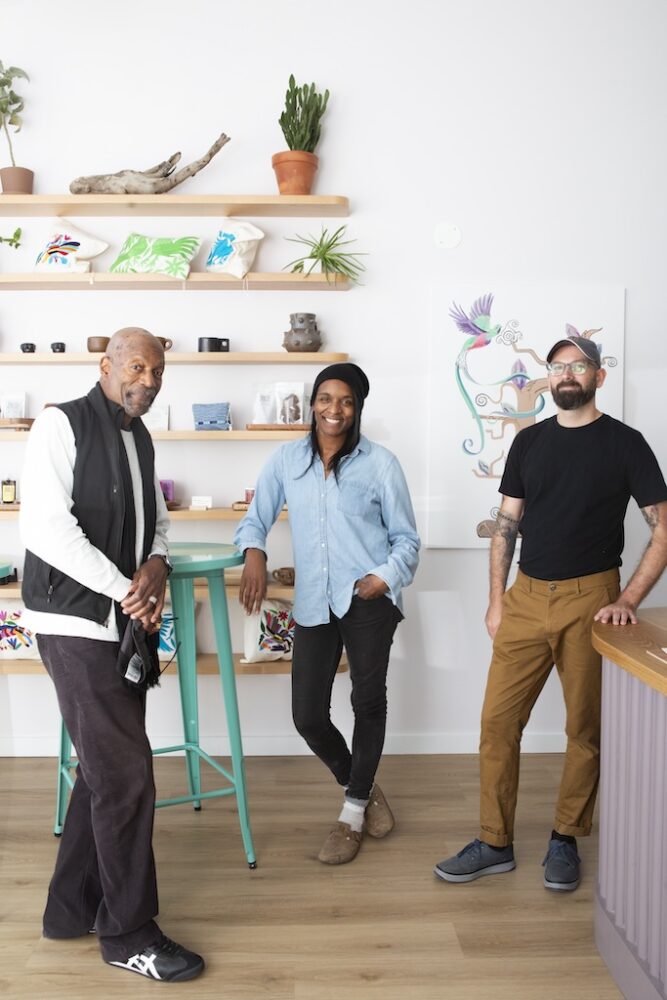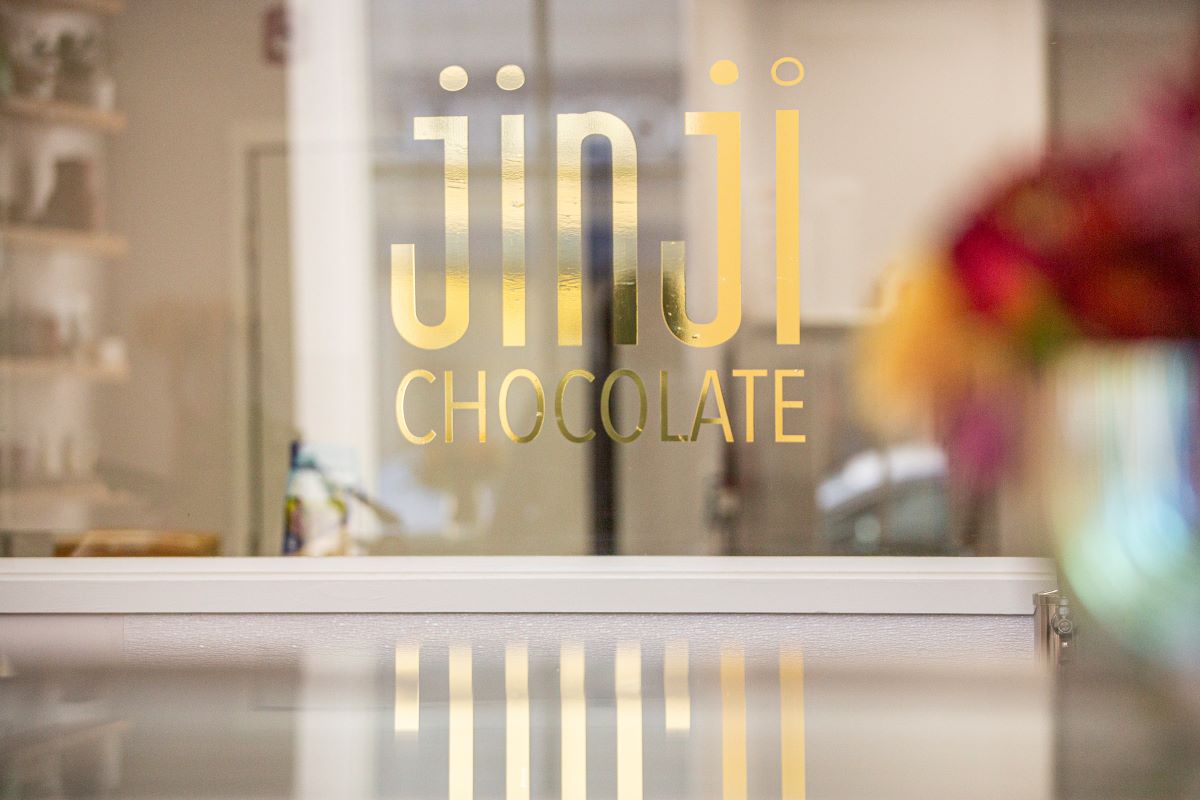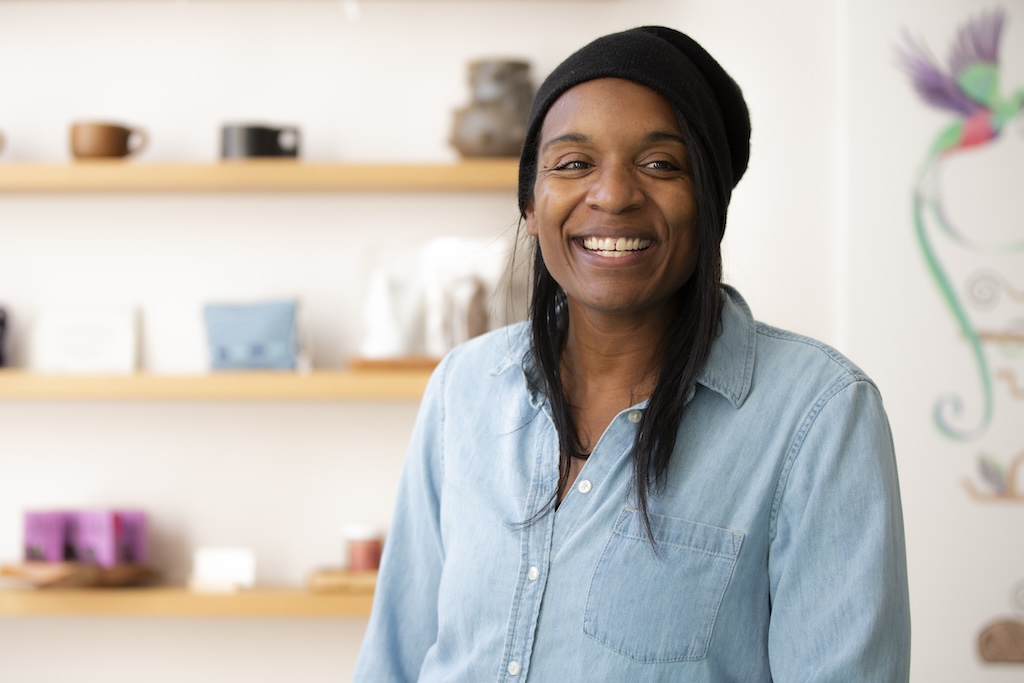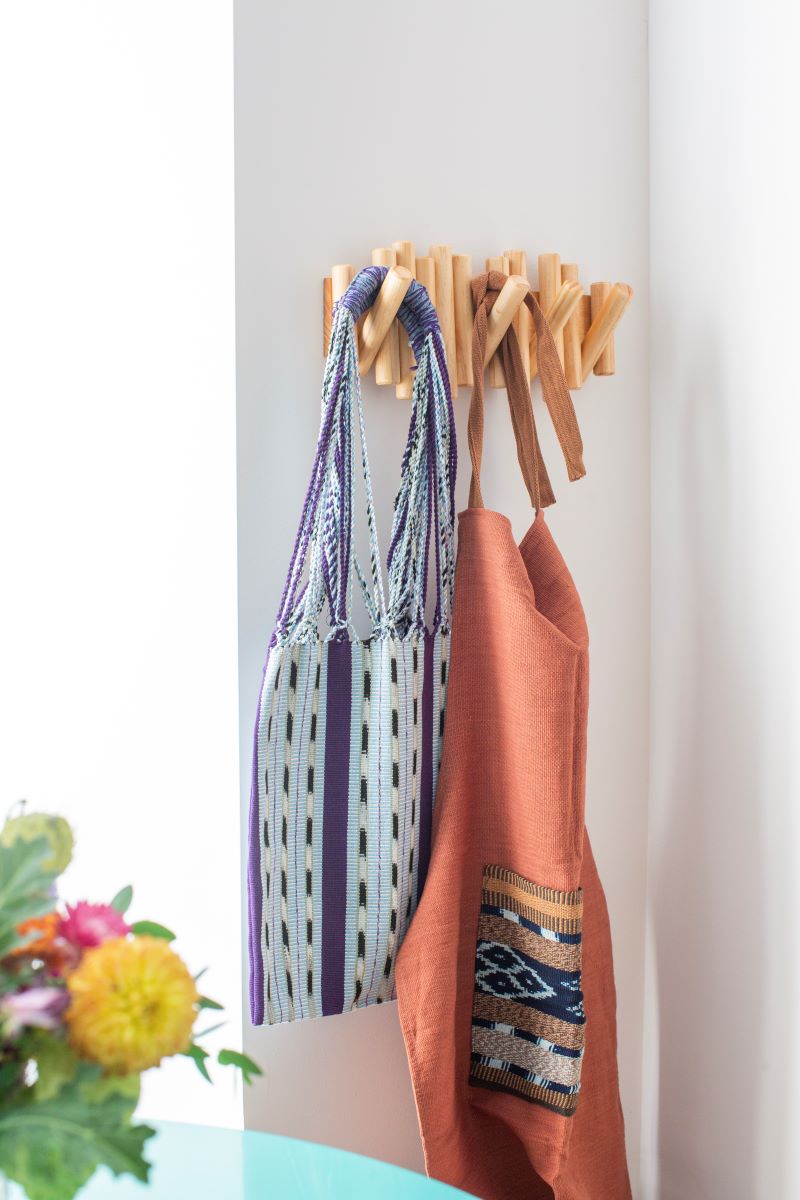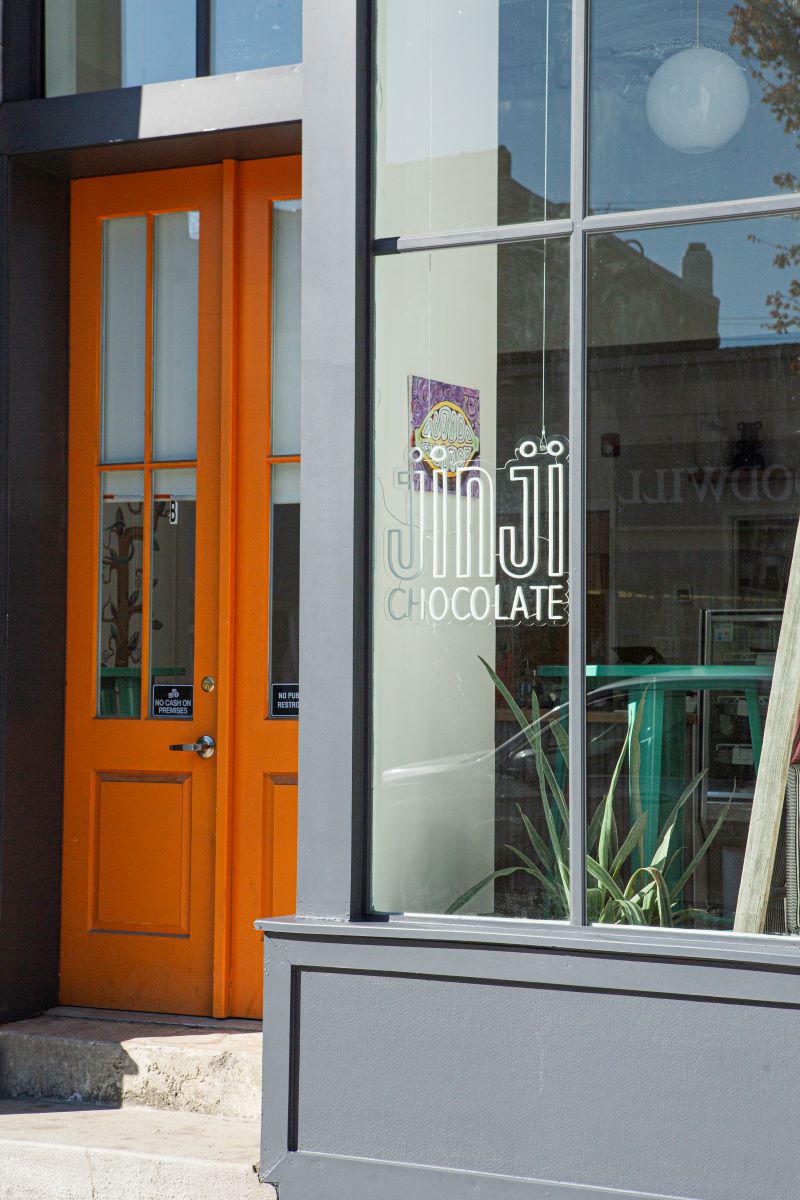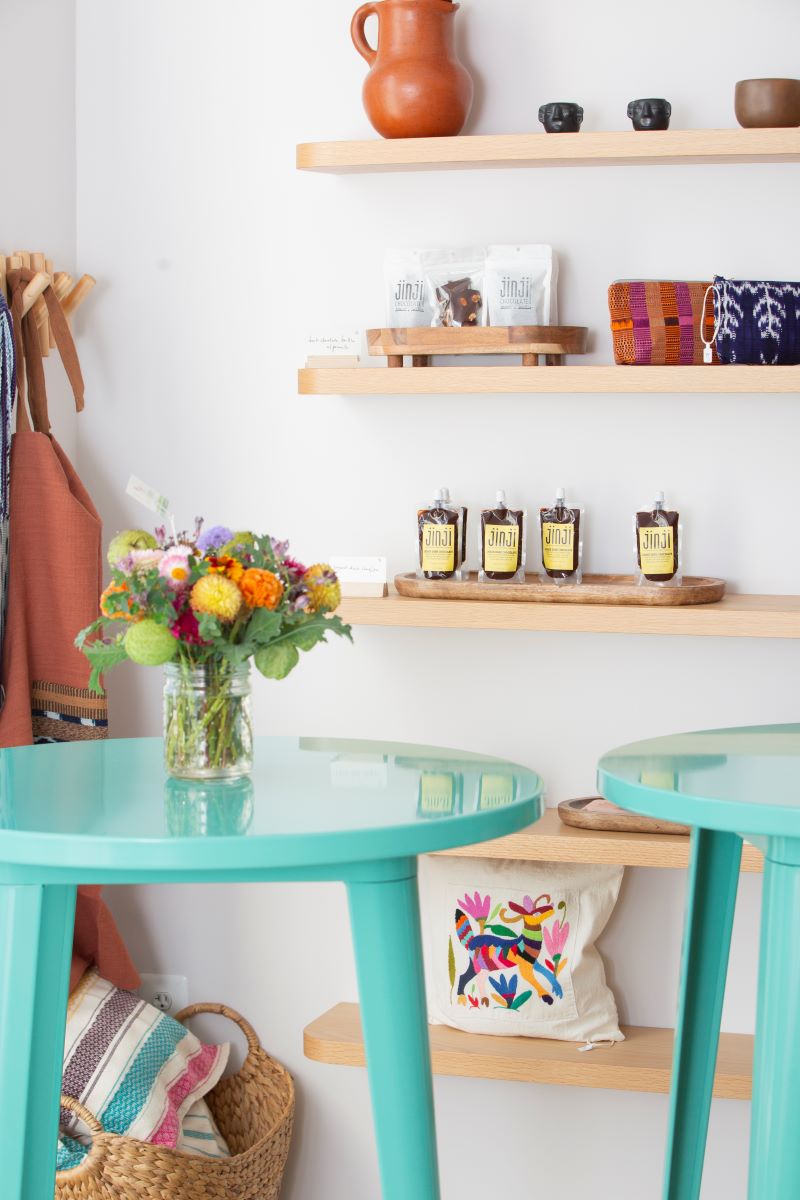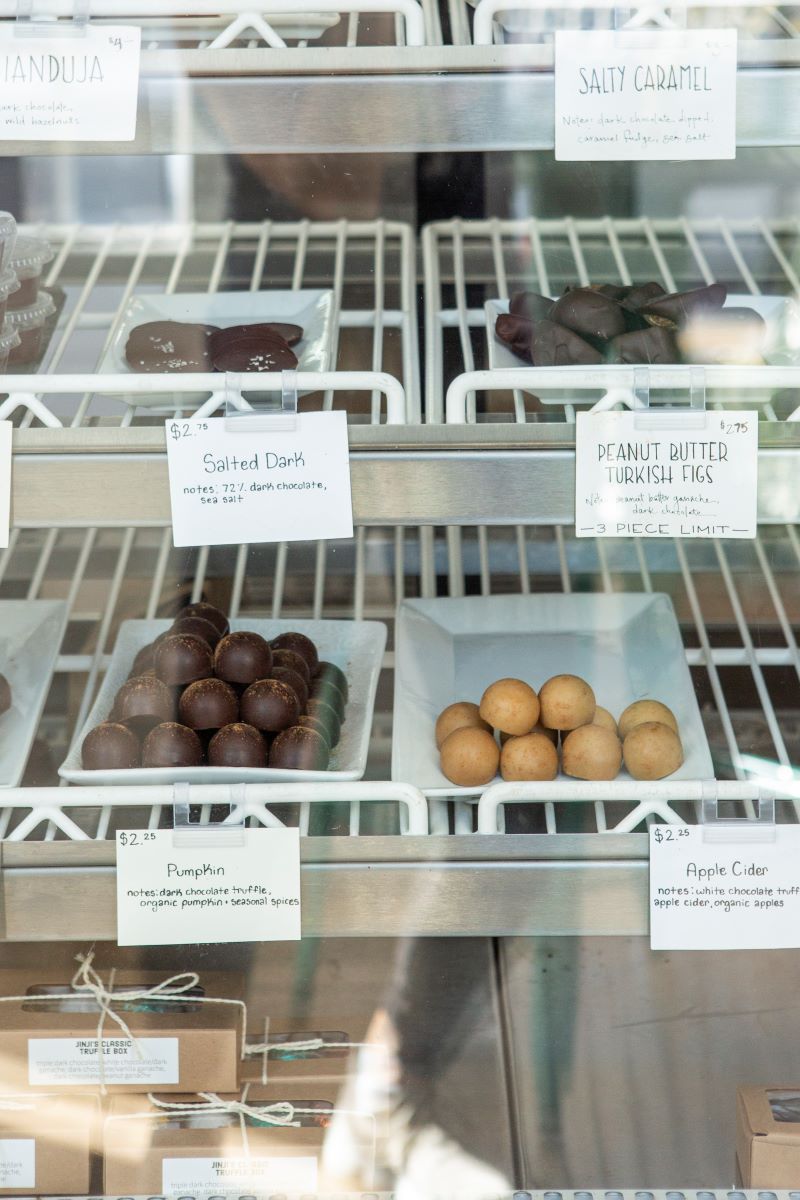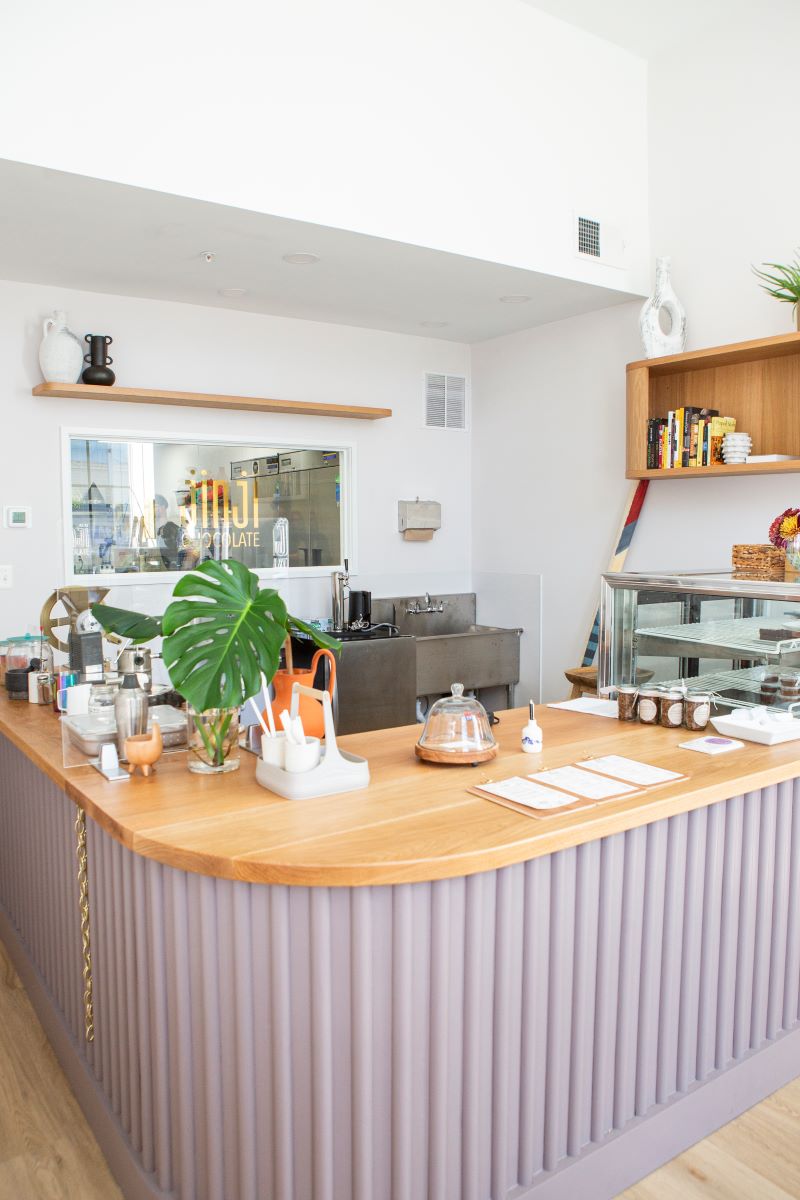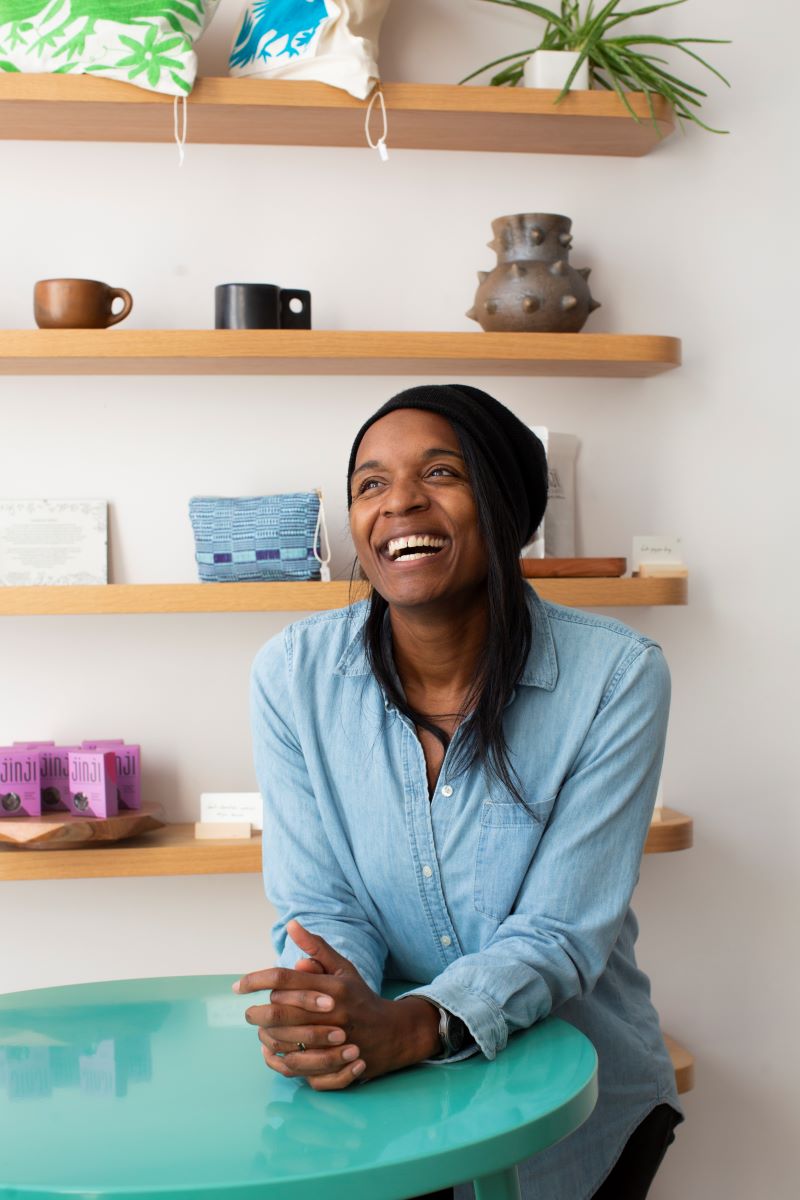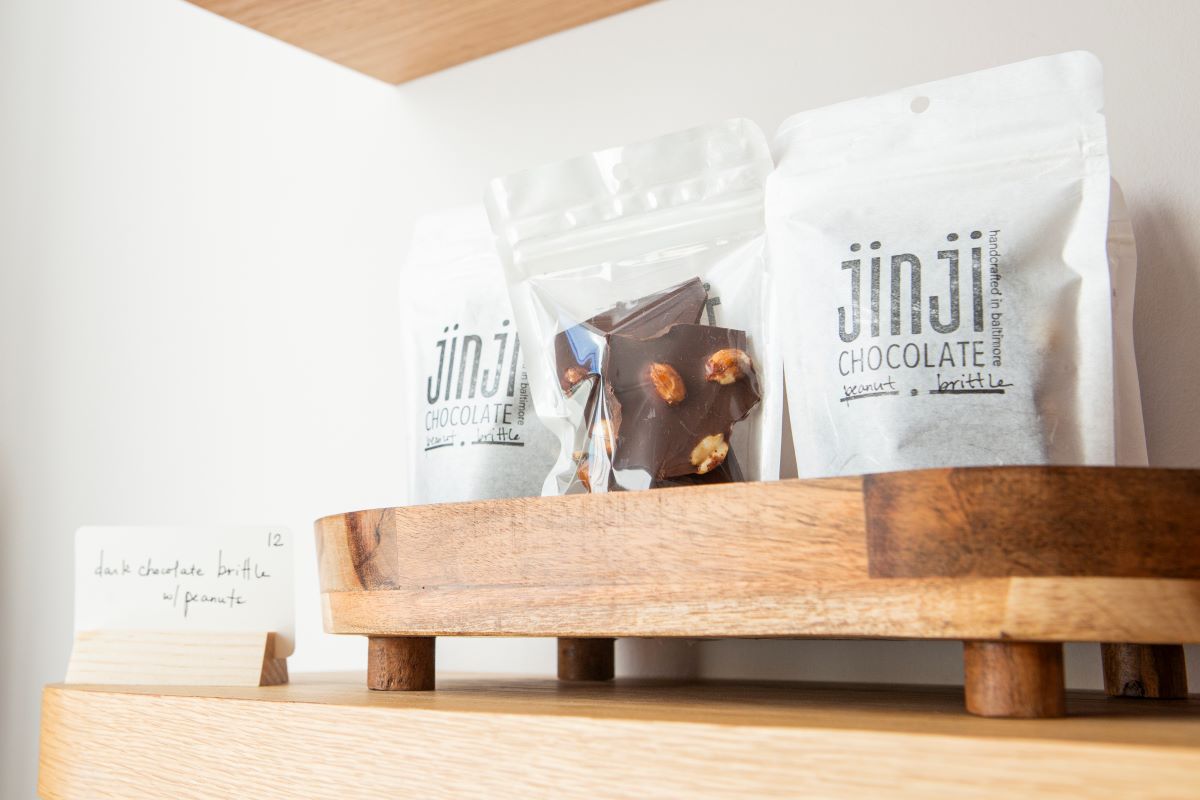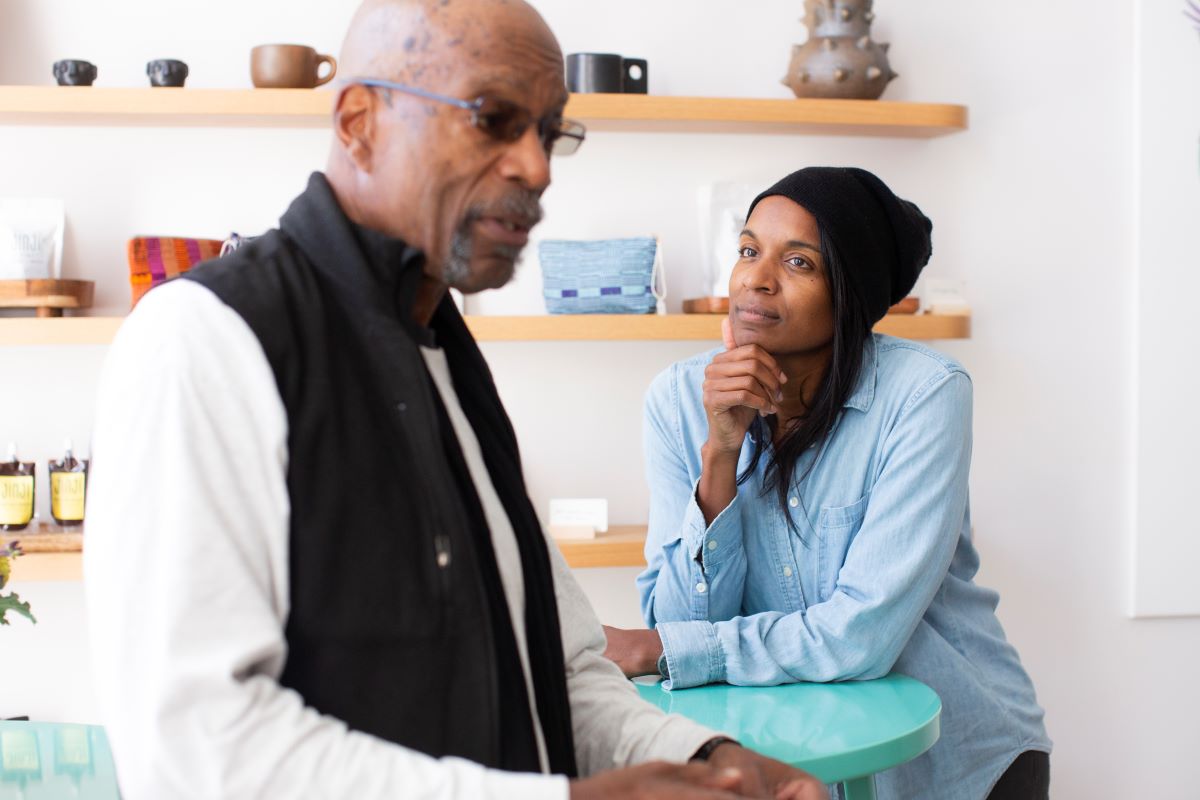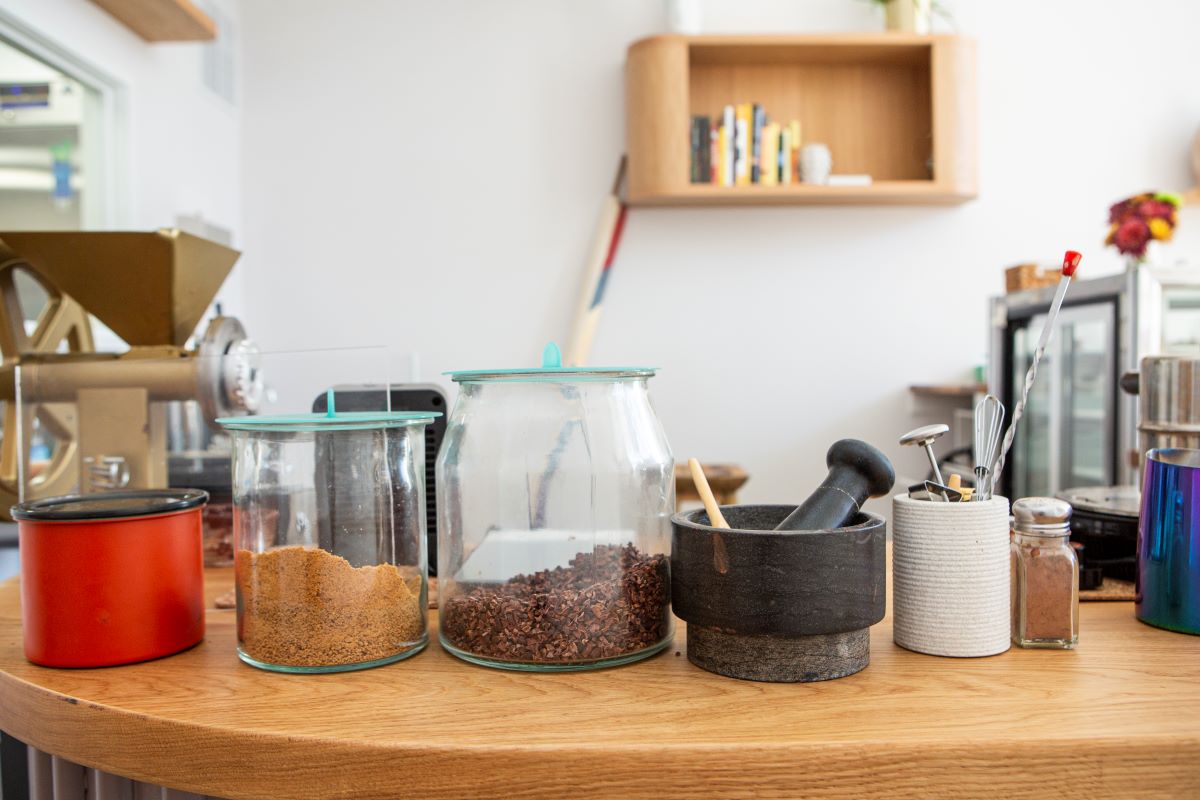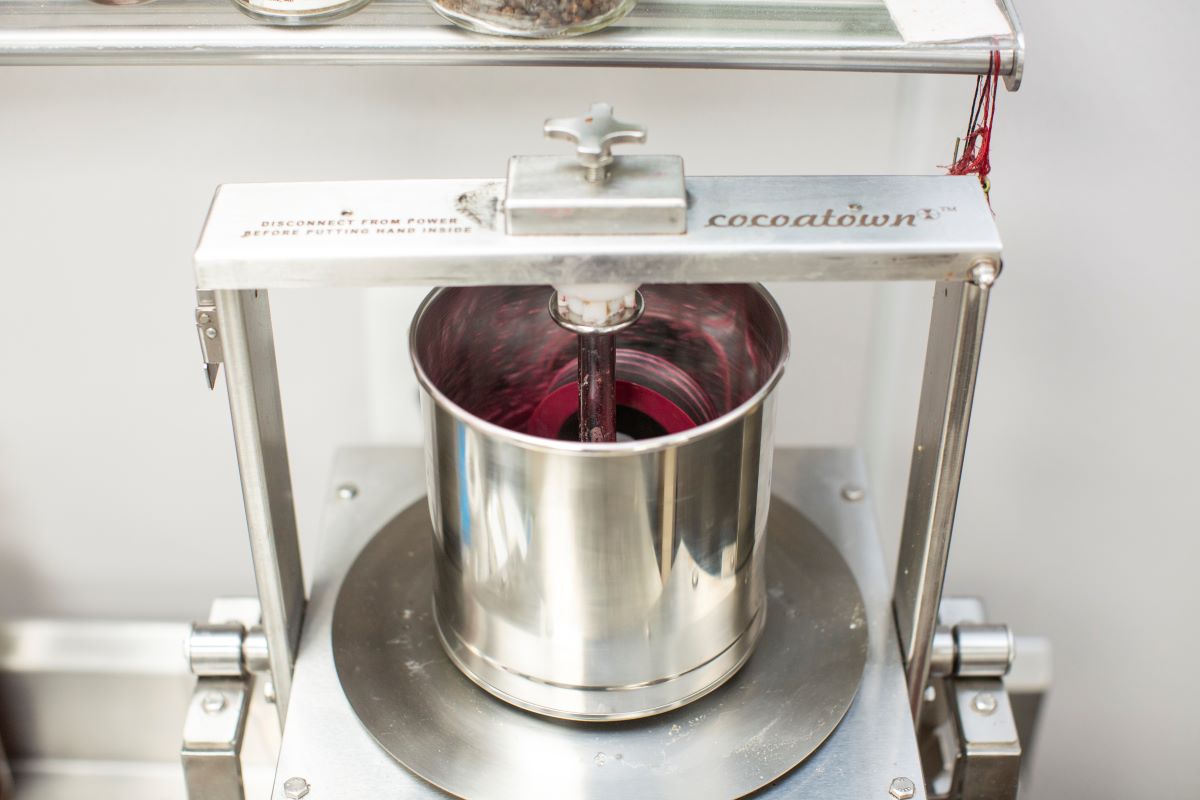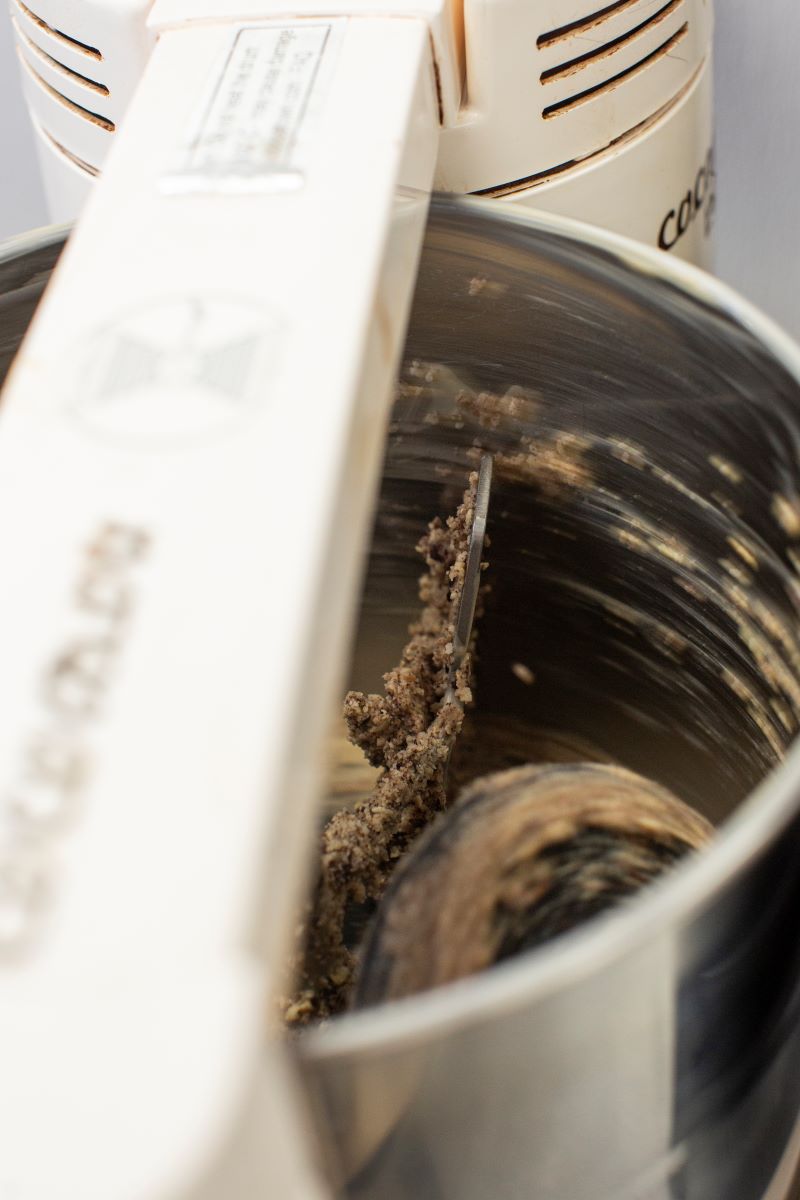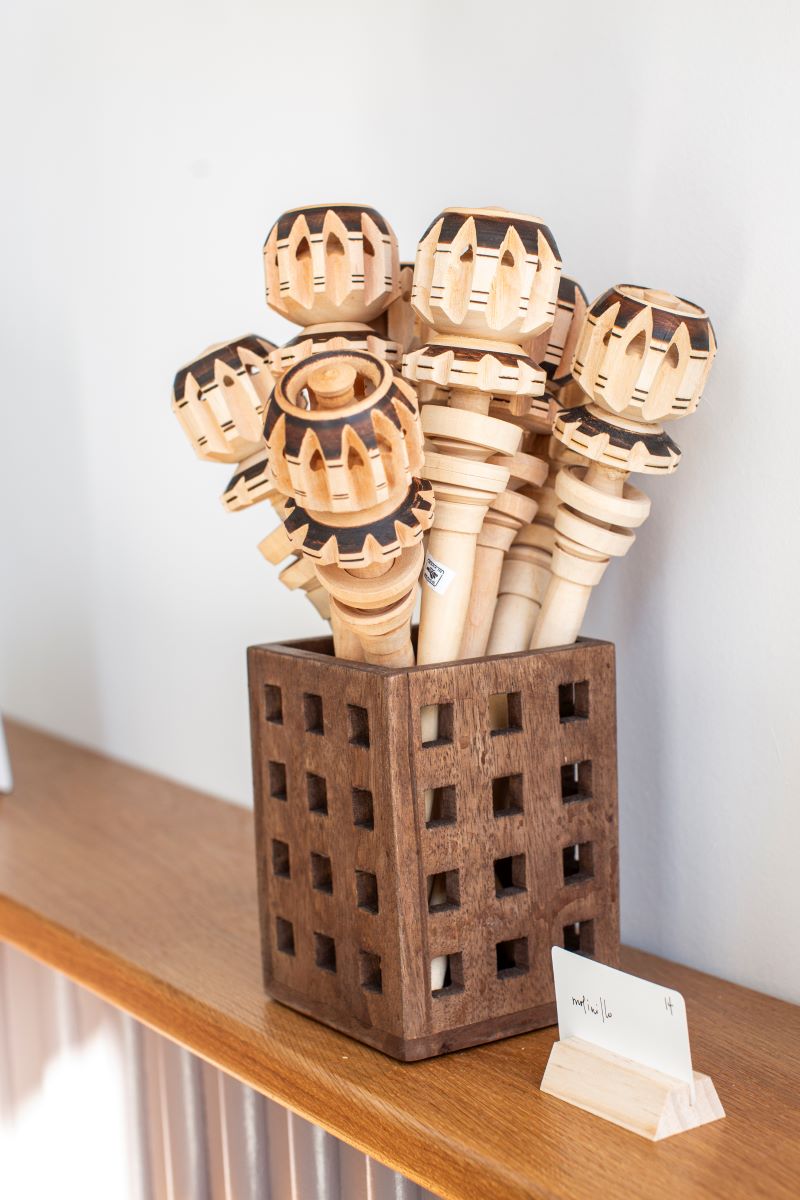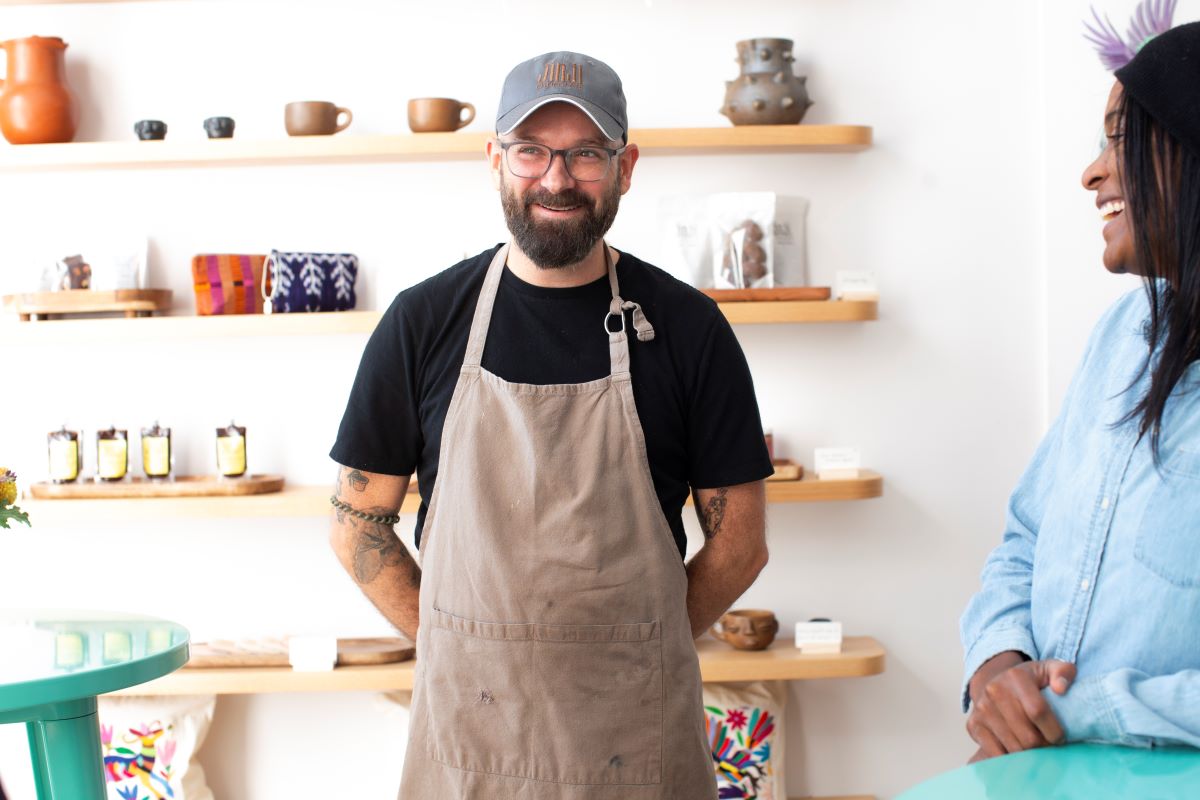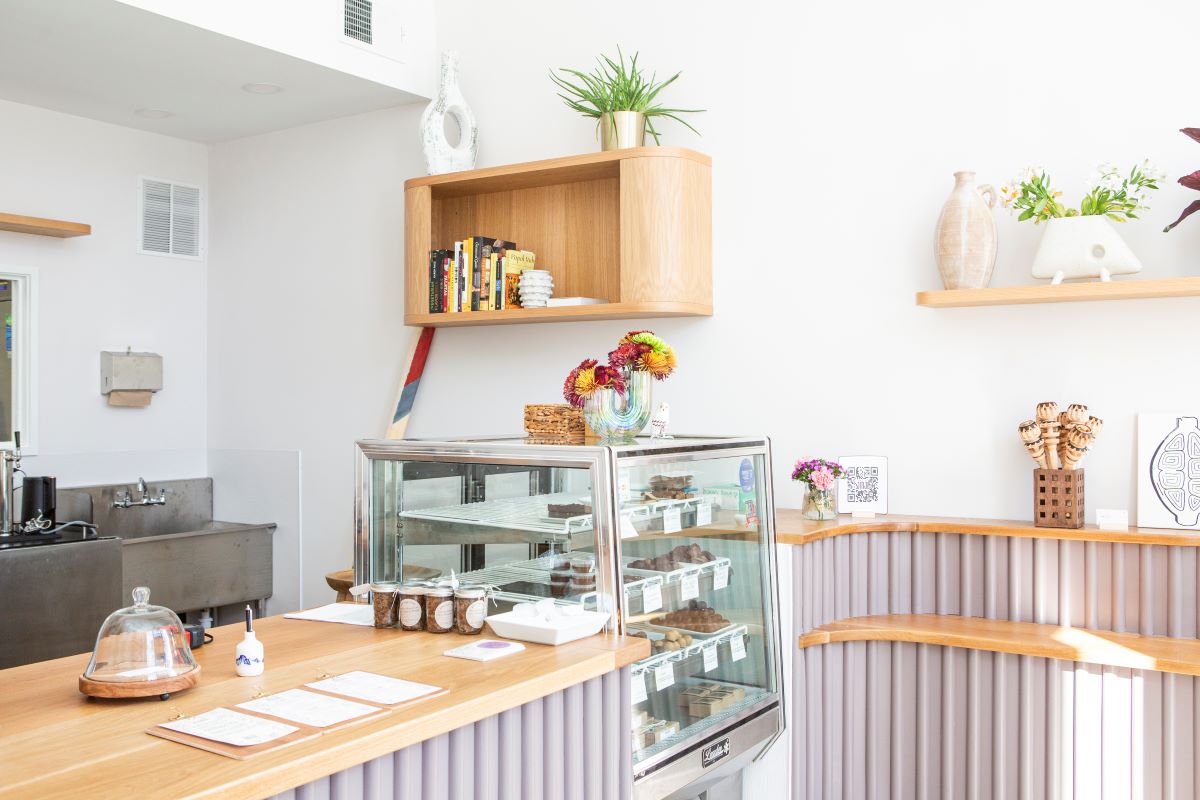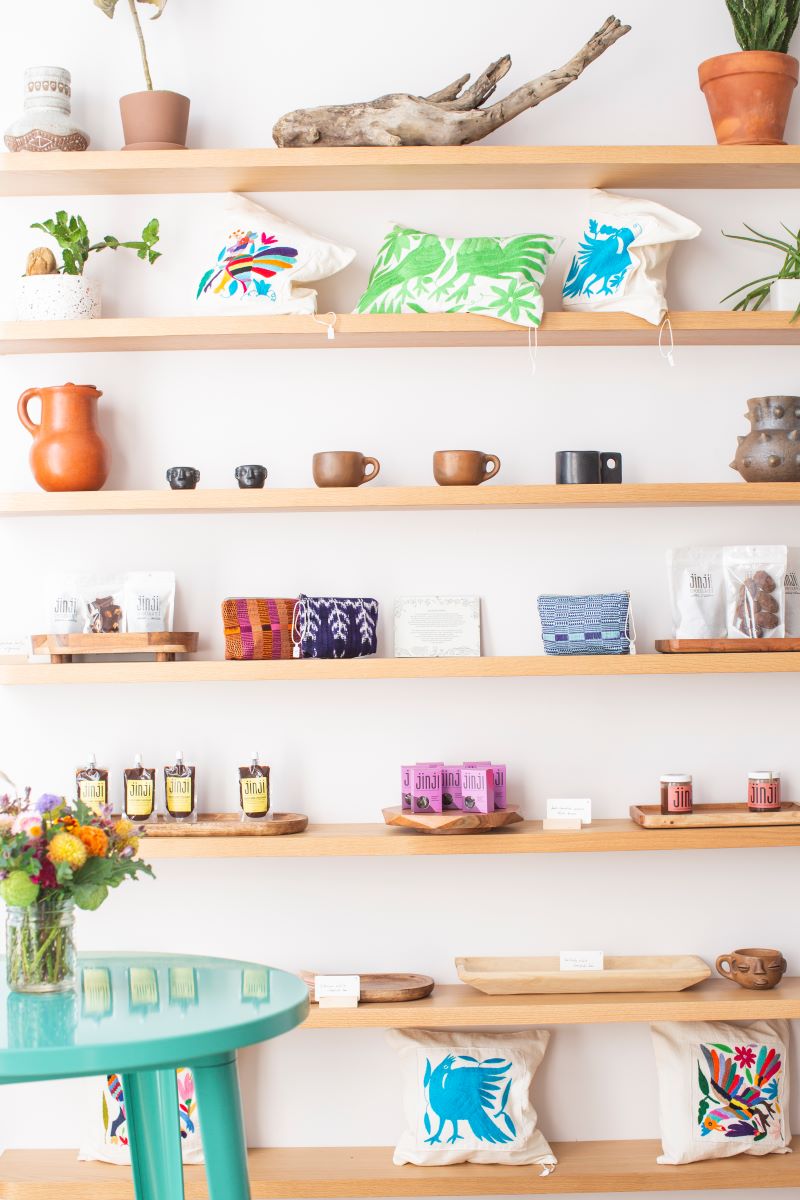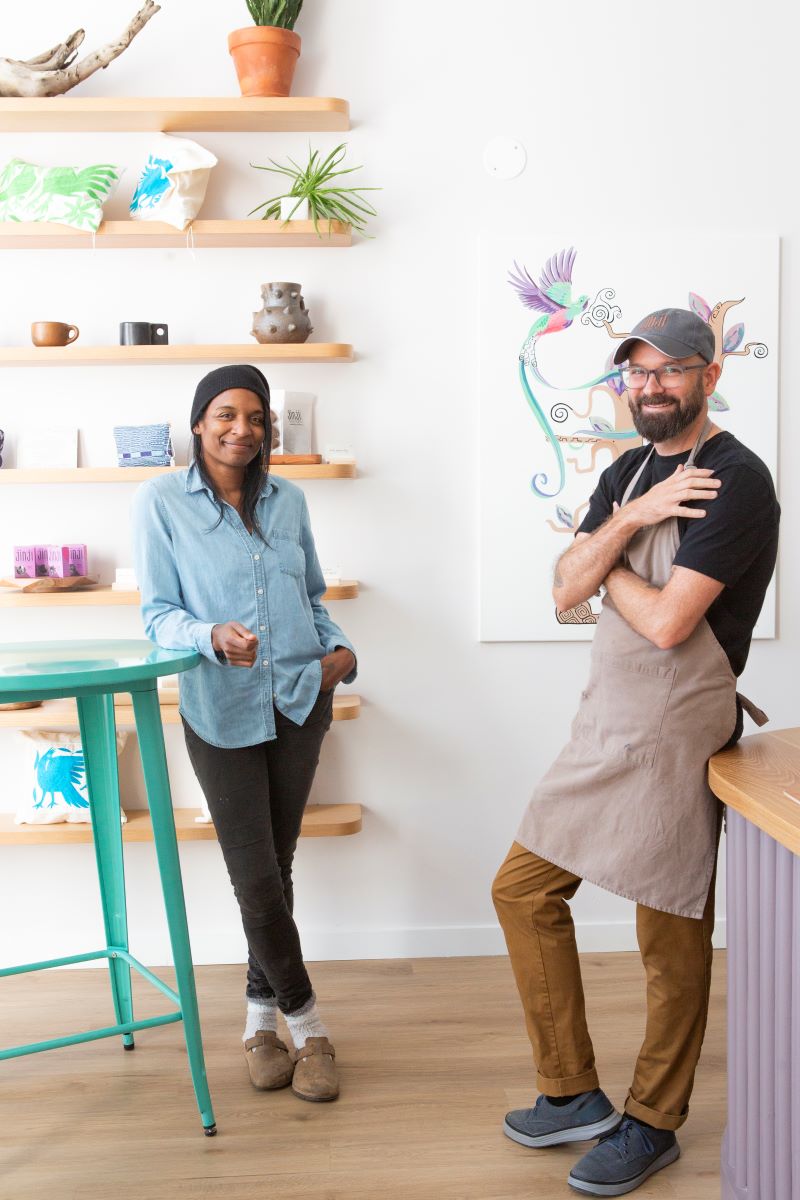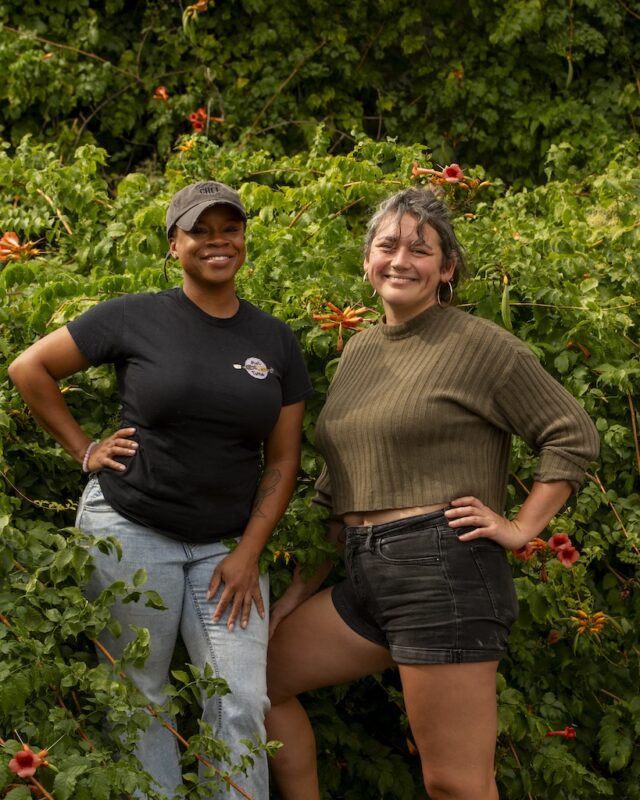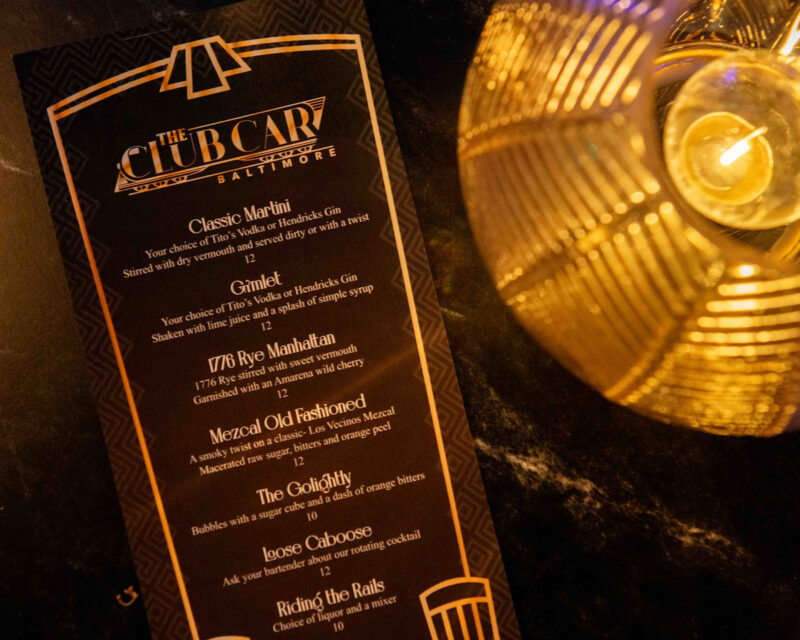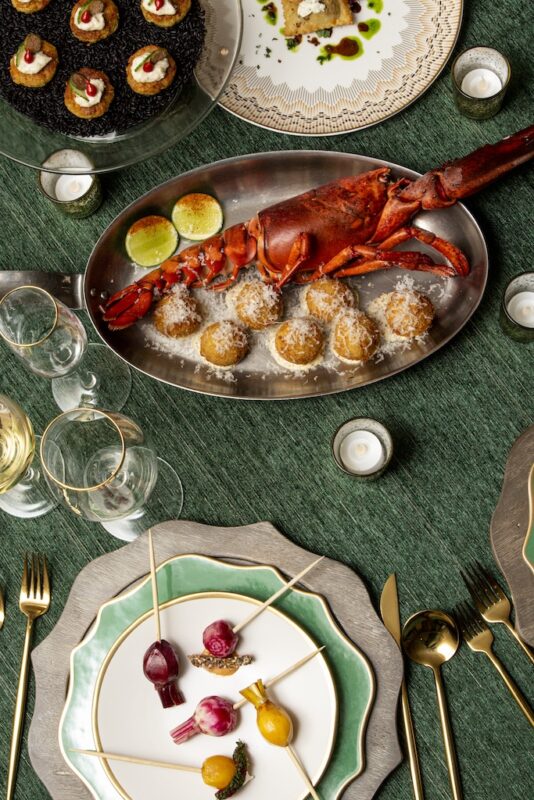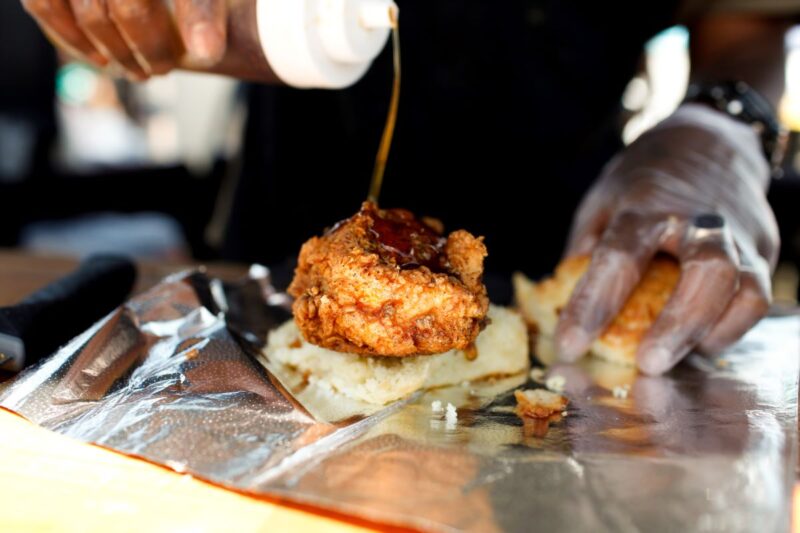The door cracks ajar and swirls the aroma of chocolate through the cozy violet storefront where we are crowded for a final photo. The stranger emerges into view, closes the unlocked door behind her, and is warmly greeted by Jinji Fraser.
“I’m glad that you stopped by,” she says happily, “And also,” her tone shifts to sympathy, “…we open tomorrow.” Jinji offers her a condolence-wrapped invitation as they share a big laugh to alleviate the tension.
“I remember you were in Belvedere, and I just wanted to find you,” the stranger says. “My mom lives close by, so I’ll be back.” She turns to leave us but stops before she reaches the door when Guy, Jinji’s Dad and co-founder of Jinji Chocolate, calls out to her.
“What’s your name?” he asks.
She’s the second person to walk in during the hour and a half we’ve spent together, and both promise they will return.
“People were so ready for a Greenmount upswing,” Jinji says about their new location in Waverly. “The support has been overwhelming.”
Jinji Chocolate was a staple booth at Belvedere Square Market for ten years. The move to the Waverly neighborhood last October offers the long-standing business more space and autonomy. “We relied on other businesses for so long. We became very comfortable and accepting of being an afterthought. People would come for breakfast or lunch and then would realize there’s this chocolate shop,” Jinji shares.
“It didn’t feel like it was intentional as much as it was a happy coincidence to them. But now, everyone that walks into the door is intending to be here. They are meeting us with as much intention as we’re meeting them,” she says. The welcome change in atmosphere is suitable for an intention-centric business like Jinji’s, who started the business with her father, Guy, in 2012.


